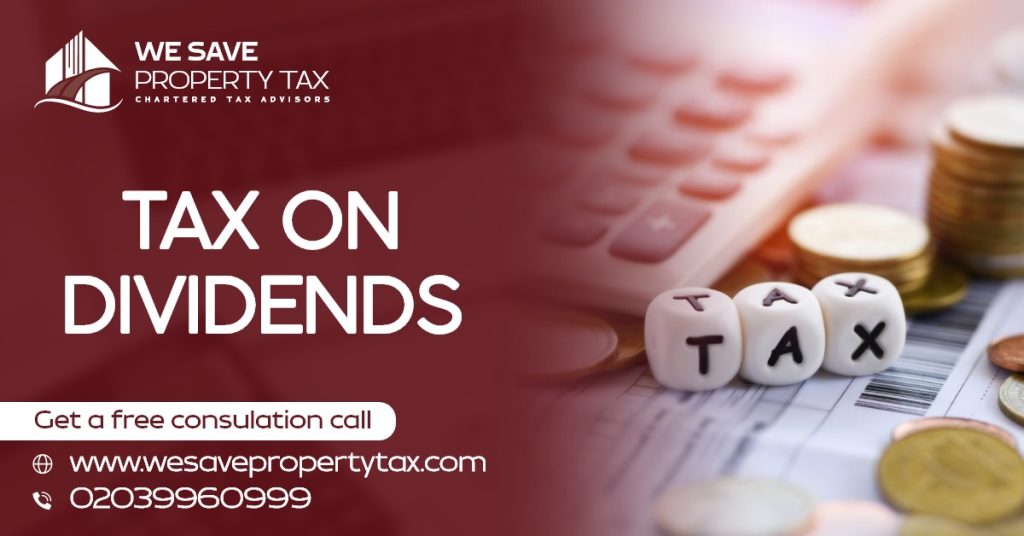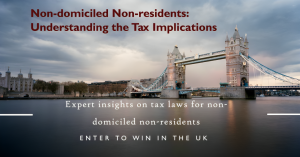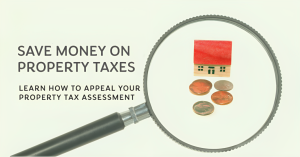Dividend Income and Tax: A Guide to Maximizing Returns
If you’re new to self-employment and running a limited company. You may have come across the term Dividend Tax and Income in business discussions. But might not be familiar with what it actually means.
In this article, our tax experts will answer the following questions. what is a dividend income? how do they help you be more tax-efficient? and what are the current dividend tax rates in the UK?
What is a dividend Income?

In the UK, a dividend is a payment made to shareholders by a company out of its profits. When a company makes a profit, it has a number of options for what to do with that money. It may choose to reinvest the profits back into the business or pay them out to shareholders in the form of dividends.
Dividends are typically paid in cash. But can also be paid in the form of additional shares in the company, known as scrip dividends. They can be paid quarterly, half-yearly or annually. Depending on the company’s policy.
As of the 2022/23 tax year, the dividend tax rates in the UK are as follows:
Dividend Tax Rates In The UK
- The dividend allowance is £2,000. This means that the first £2,000 of dividend income in the tax year is tax-free.
- Basic-rate taxpayers (earning up to £50,270 in the 2022/23 tax year) pay tax on dividend income above the £2,000 allowance at a rate of 7.5%.
- Higher-rate taxpayers (earning between £50,271 and £150,000 in the 2022/23 tax year) pay tax on dividend income above the £2,000 allowance at a rate of 32.5%.
- Additional-rate taxpayers (earning over £150,000 in the 2022/23 tax year) pay tax on dividend income above the £2,000 allowance at a rate of 38.1%.
It’s important to note that if you receive dividend income. You’ll need to report it on your self-assessment tax return. Even if you don’t need to pay any tax on it. Additionally, if you’re a director of a limited company and take both a salary and dividends. You’ll need to ensure that you’re paying yourself a reasonable salary before paying dividends, in line with HMRC’s rules.
How does your company issue a dividend?
To issue a dividend, a limited company needs to hold a meeting of its board of directors to formally declare the dividend. Even if there is only one director. The meeting must be documented in minutes and kept as a record.
When issuing a dividend, a dividend voucher should be provided for each payment. Which includes the date of payment, the company name, the names of the shareholders receiving the dividend, and the amount of the dividend. Recipients of the dividend should be given a copy of the voucher, and the company should keep a copy for its own records.
Dividend payments are typically distributed according to the percentage of shares owned by each shareholder. For instance, if a shareholder owns 50% of the company’s shares, they would receive 50% of each dividend distribution.
Understanding tax on dividends
A limited company doesn’t pay taxes on its dividend payments. Shareholders might face taxes on received dividends through the Self Assessment process. Based on personal circumstances.
Operating your business as a limited company can be advantageous in terms of tax efficiency since neither the company nor the employee will need to pay National Insurance Contributions (NICs) on dividends.
If you earn a salary that exceeds the relevant National Insurance (NI) thresholds, both employer’s and employee’s NICs will need to be paid. Many limited company owners opt to combine dividend payments with a low salary to operate their businesses and manage their personal finances in a tax-efficient manner.
Understanding the annual tax-free UK Dividend Allowance
For the tax years 2022/23 and 2023/24, you can receive up to £2,000 and £1,000 in dividends, respectively, without being liable to pay any Income Tax on them. This dividend allowance is in addition to your Personal Tax-Free Allowance, which is currently set at £12,570 for both the 2022/23 and 2023/24 tax years.
Paying Yourself In Dividends
When your limited company earns a profit, you have the choice of either reinvesting the profits back into the company or distributing them to shareholders in the form of dividends. As the owner and manager of your limited company, you are considered a shareholder and can pay yourself a dividend.
Opting to pay yourself in dividends can be a tax-efficient way to withdraw money from your company since personal taxes on dividends are typically lower. By combining dividend payments with a salary, you can further optimize your tax efficiency.
What is the maximum you can take in salary and dividends without paying Higher Rate tax?
The maximum you can take in salary and dividends without paying Higher Rate tax in the UK depends on your personal circumstances and tax year. For the 2022/23 tax year, you can take a salary of up to £50,270 and still stay within the basic rate tax threshold. You can receive up to £2,000 in dividends tax-free. Dividends exceeding this limit face a 7.5% tax for basic rate taxpayers.
To remain below the Higher Rate tax threshold for the 2022/23 tax year, set at £50,270, ensure your combined salary and dividend income stays below this limit. If your income does exceed this threshold, you will be subject to the Higher Rate tax of 40% on the excess amount. However, it’s important to note that tax rules and rates can change over time, so it’s always advisable to seek professional advice from a tax expert.
Dividend Tax Rates for the 2023/24 tax year and the previous 3 tax years
Once you’ve exceeded the Personal Allowance and tax-free Dividend Allowance of £1,000 (£2,000 for the past three years), any further dividends you receive will be subject to tax. The tax amount will depend on your tax band or marginal rate, which is generally lower than the income tax rates. This makes dividends a tax-efficient option for limited company directors. The dividend tax rates for 2023/24 (the same for 2022/23) are as follows:
- Basic-rate taxpayers pay 8.75%
- Higher-rate taxpayers pay 33.75%
- Additional-rate taxpayers pay 39.35%
The rates for the 2021/22 tax year were as follows:
- Basic-rate taxpayers pay 7.5%
- Higher-rate taxpayers pay 32.5%
- Additional-rate taxpayers pay 38.1%.
Maximizing Investment Returns With Tax-Efficient Investments

You can maximize your investment returns by making tax-efficient investments:
Invest in Individual Savings Accounts (ISA):
You pay no Income Tax on the interest or dividends you receive from an ISA. Any profits from investments are free of Capital Gains Tax. Any interest, dividends, or capital gains earned on investments within an ISA are tax-free. This means that you don’t have to pay any Income Tax or Capital Gains Tax on the returns you receive from your investments. Which can significantly increase your net returns.
Secondly, you don’t have to declare any investments held within an ISA on your annual tax return. This makes the investment process more straightforward and less time-consuming compared to other types of investments. Where you would have to declare any earnings or gains to HM Revenue and Customs (HMRC).
Additionally, ISAs offer a range of investment options including cash, stocks and shares, innovative finance, and lifetime ISAs. This means that you can choose the type of investment that suits your risk profile and investment goals.
Lastly, the annual ISA allowance allows you to invest up to a certain amount each tax year. Any returns earned on investments within the ISA do not count towards this allowance. The current ISA allowance for the tax year 2022/23 is £20,000. This means that you can invest up to £20,000 in your ISA each year. And receive tax-free returns on your investment.
Overall, ISAs are a popular investment option in the UK due to their tax-efficiency, flexibility, and ease of use.
Investment in Self-Invested Personal Pensions
Investing in Self-Invested Personal Pensions (SIPPs) can be a tax-efficient investment in the UK as it provides tax relief on contributions and tax-free growth on investments.
When you contribute to a SIPP, you receive tax relief at your highest rate of income tax. This means that for every £1 you contribute to your SIPP, the government adds an additional 20% as basic rate tax relief. If you are a higher or additional rate taxpayer, you can claim further tax relief through your self-assessment tax return.
In addition to the tax relief on contributions, the investments held within the SIPP grow tax-free. This means that any dividends, interest, or capital gains generated by the investments are not subject to tax.
However, it’s important to note that when you eventually withdraw money from your SIPP, it will be subject to income tax at your marginal rate. So while investing in a SIPP can be tax-efficient in terms of contributions and investment growth, it’s important to plan ahead for the eventual tax implications of withdrawing the funds.
Empower Yourself to Achieve Financial Independence with Dividend Income and Tax Strategies
Do you dream of achieving financial independence, but don’t know where to start? Wealth-building can seem like an overwhelming task, but there are ways to make your money work for you. One powerful strategy is to invest in dividend-paying stocks and implement tax strategies that can help you maximize your returns.
Dividend income is an excellent source of passive income, which can provide you with long-term stability and consistent cash flow. By investing in high-quality dividend-paying companies, you can enjoy the benefits of compound growth, which can help your wealth grow exponentially over time.
But dividend income alone is not enough. To achieve financial independence, you need to invest strategically in companies with the potential for capital appreciation. This means finding companies that are well-managed, financially stable, and have a history of paying reliable dividends.
In conclusion, dividend income and tax strategies can empower you to achieve financial independence. The emotional benefits that come with it. With strategic investments in high-quality dividend-paying companies and a sound tax strategy, you can build wealth, enjoy consistent cash flow. To achieve pride in your financial achievements.
Conclusion

It’s important to note that tax rules and rates can change over time, so it’s always advisable to seek professional advice from a tax expert.
Looking for expert advice on dividend income and how to maximize your tax efficiency? Look no further than We Save Property Tax! Our skilled tax advisor offer professional advice on tax matters such as dividend income and tax reduction. Prevent taxes from reducing your returns. Reach out now to save money and build wealth with our assistance. Visit our home page to learn more and schedule a consultation and to Learn more Click UK Property Tax









